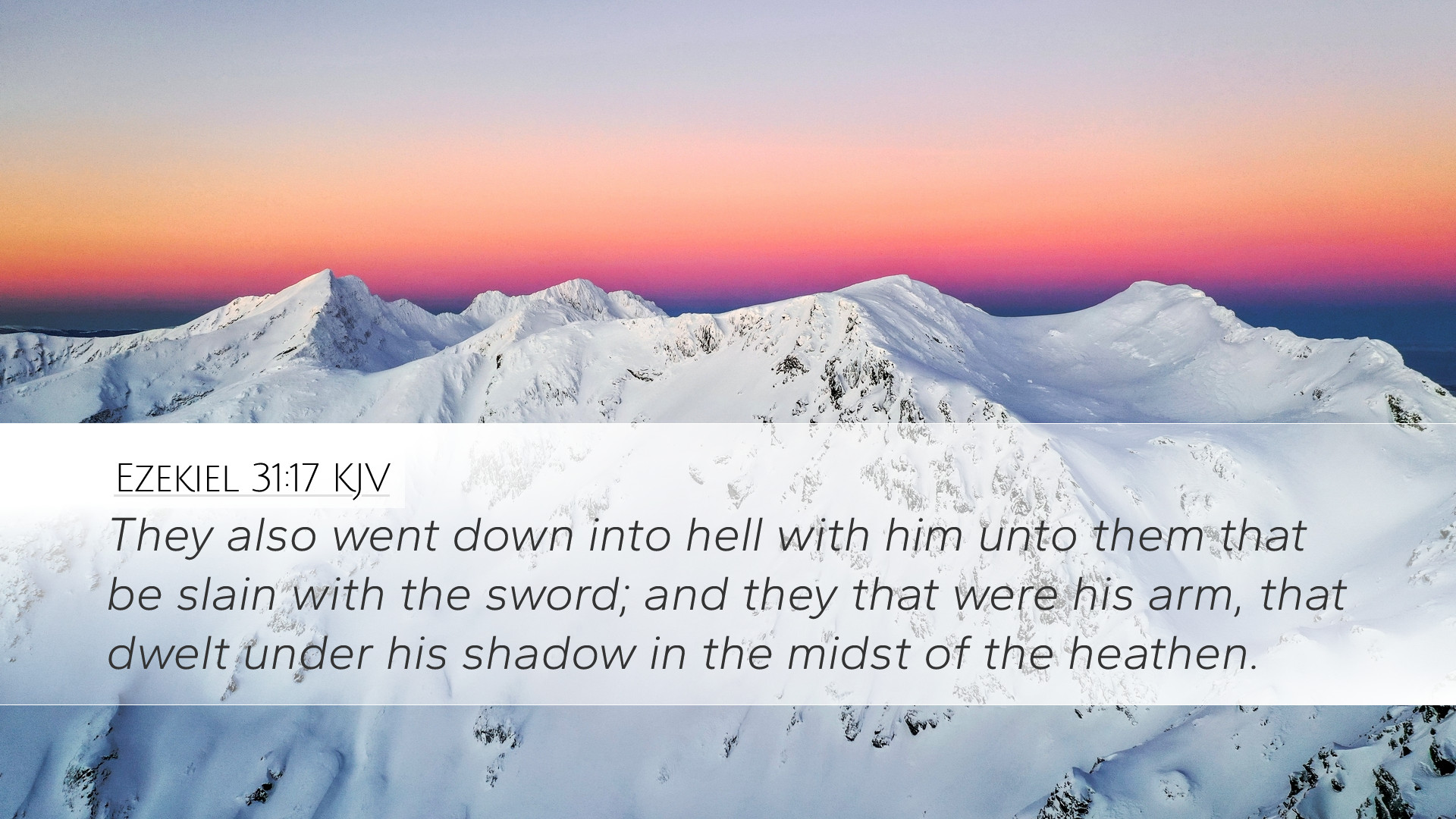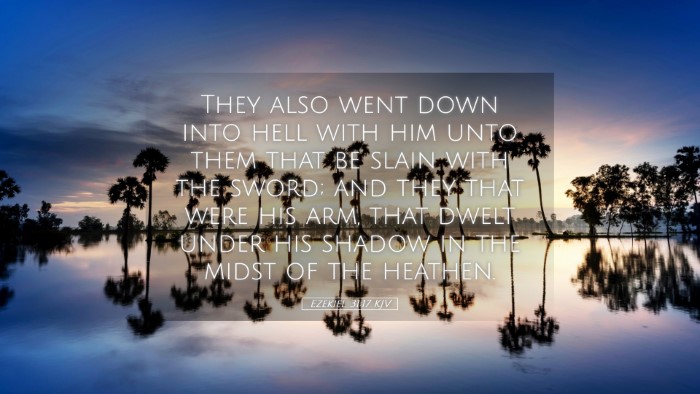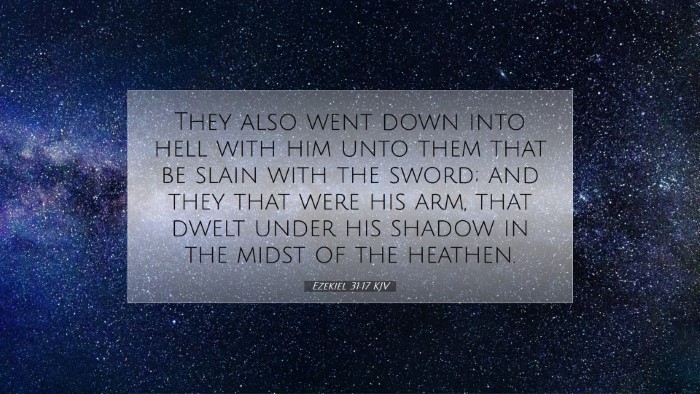Commentary on Ezekiel 31:17
Bible Verse: "They also went down into Sheol with it, to those slain by the sword; and those who were its arm, who lived under its shadow in the midst of the nations."
Introduction
The verse Ezekiel 31:17 is a part of a grand allegorical narrative that seeks to illustrate the fall of Egypt, likened to a majestic cedar tree. The prophet Ezekiel, speaking in the context of divine judgment, emphasizes the inevitable fate that awaits even the mightiest nations. This commentary summarizes insights from notable public domain sources to unpack the theological significance of this passage for contemporary readers, especially pastors, students, and theologians.
Contextual Analysis
In the chapters leading to this verse, Ezekiel uses a rich tapestry of imagery to describe the greatness of Assyria, using it as a metaphor for the pride and downfall of mighty nations. As found in commentary from Matthew Henry, the chapter presents Assyria as a towering tree that provided shade and shelter to many. The fall of this tree has significant implications, denoting a larger principle regarding the transitory nature of human power and pride.
Meaning of "Sheol"
The term "Sheol," referenced in this context, can be understood as the abode of the dead. Biblical scholars, including Adam Clarke, point out that in ancient Hebrew thought, Sheol represents not merely a grave but a fundamental aspect of life after death. The imagery of going down to Sheol with the fallen tree conveys a powerful message about mortality, calling to remembrance that all great powers eventually succumb to death. This theological insight urges the reader to reflect on the futility of boasting in earthly might.
The Slain by the Sword
The phrase "the slain by the sword" serves multiple interpretative layers. Albert Barnes elucidates that this alludes to the warriors and leaders who once basked in the glory of their fierce conquests but are now defeated, illustrating the end of glory. The sword represents not just physical death, but the judgment of God against nations and rulers who act in defiance of His authority. This stark reminder prompts the faithful to consider the ultimate accountability before God.
Living Under Its Shadow
Ezekiel speaks of those who lived "under its shadow," a potent metaphor for dependence and association. The shadow represents protection, provision, and sometimes oppression. The commentary from Matthew Henry highlights how many people gravitate towards powerful entities, hoping to find security. However, when the tree falls, they too experience the consequences. This serves as a clear warning against misplaced trust in earthly powers rather than in the Almighty God alone.
Theological Reflections
- The Vanity of Human Power: The passage starkly reminds us that human might is fleeting. In the context of ecclesiastical leadership, this challenges pastors and theologians to root their confidence not in their own abilities but in God’s sovereignty.
- The Universal Scope of Divine Judgment: The fate of the mighty cedar tree symbolizes the certainty of divine judgment. As noted by Adam Clarke, no one is exempt from accountability, encouraging a spirit of humility and repentance.
- The Importance of Relying on God: Engaging with the symbol of the shadow invites believers to assess where they find their security. Are they sheltered under the ‘shadow of the Almighty’ (Psalm 91:1) or under transient earthly supports?
Conclusion
Ezekiel 31:17 offers a profound insight into the nature of human pride and the certainty of God's judgment. The combined reflections from public domain commentaries provide a multifaceted understanding of this verse, encouraging those who study it to embody the lessons of humility and dependence upon God. As contemporary readers engage with this prophetic message, they are invited into a deeper understanding of the eternal truths implied in the imagery of the cedar tree and its inevitable fall.


